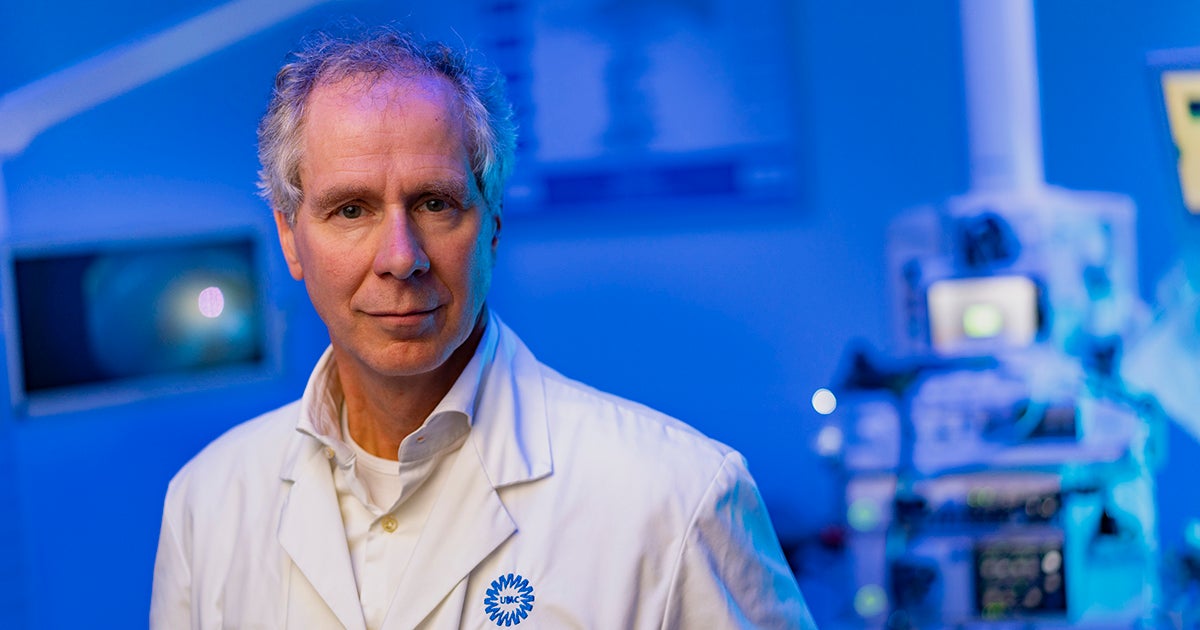Partly as a result of the research led by Professor of Inflammatory Bowel Disease Bas Oldenburg of the UMC Utrecht, the causes of chronic intestinal inflammation (IBD) are becoming increasingly clear and patients are increasingly able to receive tailor-made treatment. On June 20, 2022, he delivered his inaugural lecture entitled “Unraveling the IBD Enigma”.
In his inaugural lecture, Bas Oldenburg responds to developments in the diagnosis, treatment, research and education surrounding chronic inflammation of the gastrointestinal tract, such as ulcerative colitis and the Crohn’s disease. People with these diseases, also known as inflammatory bowel disease (often abbreviated to IBD), often suffer from abdominal pain and diarrhea. Also, about 40 percent of them suffer from severe fatigue and irritable bowel-like complaints, even if the intestinal inflammation is under control.
Understanding these disorders better
In the Netherlands, almost 100,000 people suffer from such an IBD system disease: not only does the intestine become inflamed, but also the skin, joints, eyes, liver and lungs can become involved in various combinations and degrees. The disease symptoms can often be suppressed, but a cure is not possible. IBD is part of a larger family, the so-called IMIDs: Immune Mediated Inflammatory Disorders, which also include, for example rheumatoid arthritis in psoriasis belong. “Traditionally, the interaction between the various medical disciplines, such as dermatology, MDL diseases and rheumatology, that deal with these diseases has not been optimal”, says Bas Oldenburg in his inaugural lecture. “The unique Utrecht initiative to set up an IMID outpatient clinic to which representatives of various specialisms contribute, and the merging in the UMC Utrecht of a large number of laboratories to form the Center of Translational Immunology offers high-quality care and fantastic opportunities to better understand these conditions.”
The holes in the cheese
The cause of IBD has been extensively researched over the past 20 years, but it is still unknown why some people get sick and others don’t. Researchers do know that hereditary factors, environmental factors, abnormalities of the bacterial composition in the gut – gut flora or microbiome – and disturbances of the immune system can play a role. According to Oldenburg, the history of IBD can best be illustrated according to the Swiss cheese principle. He explains: “The multilayered defense mechanism of the gut differs from person to person and is never completely opaque: there are always smaller or larger defects: the holes in the cheese. In patients predisposed to such conditions, the holes are larger or more numerous than usual. This does not always result in disease: only when, for whatever reason, the holes of the various defense mechanisms are aligned and there is a triggering factor (‘trigger’), the disease can arise.”
Treat better
The IBD research at UMC Utrecht, led by Bas Oldenburg, focuses on three main questions: (1) Why does someone get IBD and can it be prevented?, (2) How can we treat IBD better? we prevent colon cancer – which often occurs in patients with IBD? Over the past decade, many studies by PhD students led by Bas Oldenburg have contributed significantly to further unraveling the IBD enigma. An important example of this is the TWIN studywhich investigates the effects of environmental factors, diet, changes in the immune system, the intestinal flora, the function of the intestinal mucosa, metabolites and genetic factors on (the development of) IBD.
Video of an interview with MDL doctor Bas Oldenburg and doctor-researcher Eelco Brand about the TWIN study
–
–
This folder contains additional information by means of a video. Scan the top QR code with your phone to watch this video. Or watch the video at:
–
–
Education and training are also important
As an academic, Oldenburg also finds education and training very important, as he states in his inaugural lecture: “In addition to scientific research, I consider sharing knowledge and the acquisition of skills, i.e. education and training, as my most important other academic tasks. As a trainer for the specialism of MDL diseases and as coordinator of part of the education for second-year medical students, I can contribute to this with great pleasure. To my great delight, the position of education has become more solid at UMC Utrecht. There are career paths for talented teachers and the appreciation for good teaching has increased, although – in my opinion – this can still be improved.”
What is knowledge, what are facts?
Finally, Bas thinks that the study of medicine, now largely a vocational training, should be given a stronger academic profile with much more room for scientific research. Philosophy of science also deserves a stronger position in the curriculum, in his opinion. This does not only apply to the study of medicine, by the way. As far as Oldenburg is concerned, every Dutch person should already become acquainted with the basic principles of science at primary school and, for example, have thought about questions such as ‘what is knowledge?’, what are truths/facts?’ In his firm belief, this leads to a better understanding and support for research, scientific nuances and translations from science to policy.
For the full text of Bas Oldenburg’s inaugural lecture, click here.
Questions, comments or tips for the editors?
–
–


